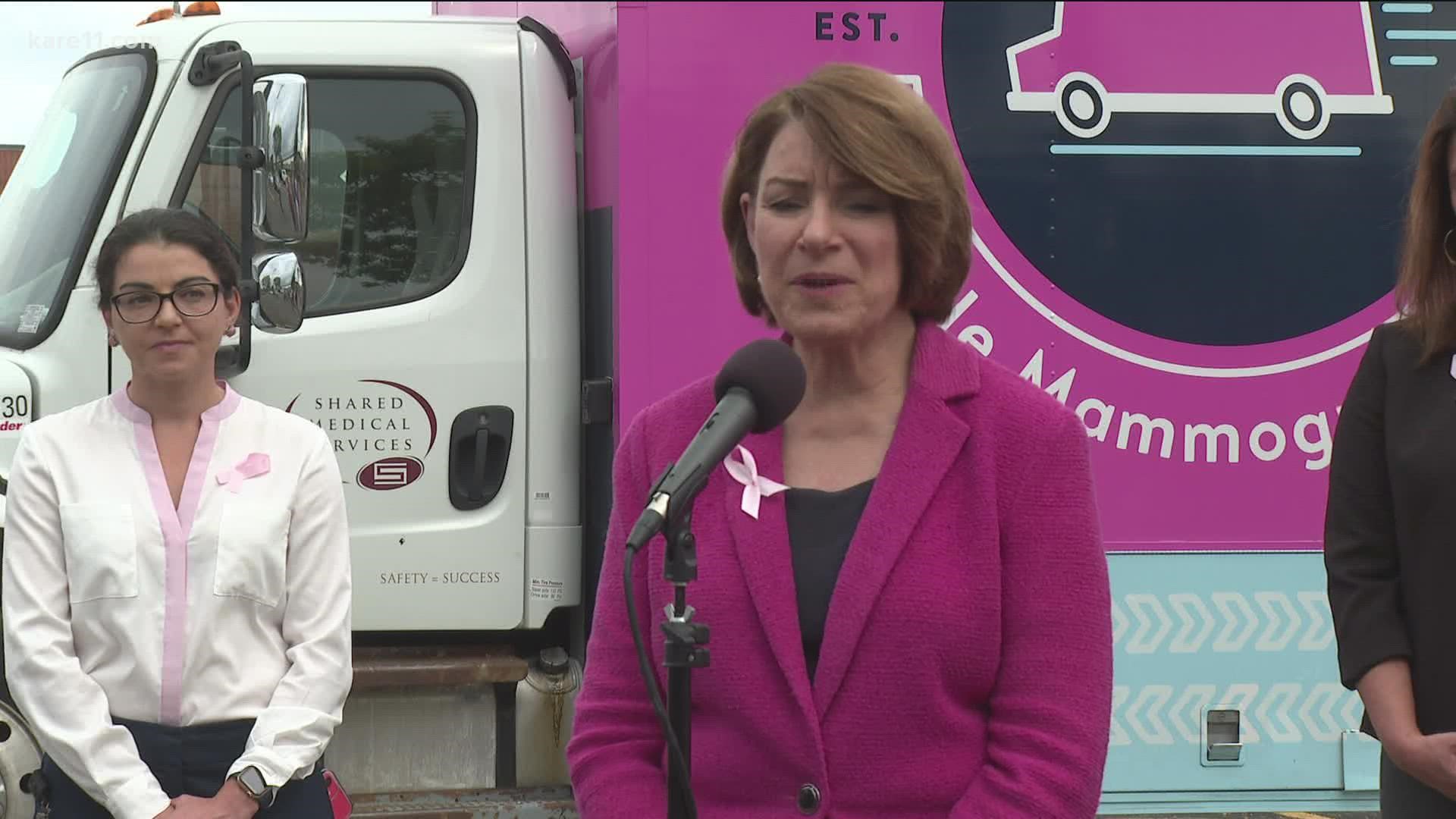BROOKLYN CENTER, Minn. — Less than a month after revealing her own breast cancer diagnosis, U.S. Senator Amy Klobuchar teamed up with HealthPartners to kick off Breast Cancer Awareness Month.
Thursday, the senator joined staff outside the Park Nicollet Jane Brattain Breast Center to tour a Mammo-a-go-go mobile mammography unit. Since 2014, the mobile screening centers have provided more than 30,000 mammograms to patients, primarily in underserved areas.
"Like so many women during the pandemic, I had put off my annual exam," Klobuchar said. "Finally, after I got the vaccine, I decided to go in and get a mammogram, and that's when I found out I had Stage IA breast cancer."
Klobuchar, who successfully received a lumpectomy and radiation, now says her chances of getting cancer again are the same as the general population. Thursday, she urged women to take time this month to get screened for breast cancer.
"Through it all, I learned a lot," she said. "It gives me this opportunity to share my story and to help other people."
The CDC reports in April 2020, cancer screening tests received by women through CDC’s National Breast and Cervical Cancer Early Detection Program declined by 87% for breast cancer. Though screening volumes started to pick back up in June 2020, health officials say communities of color still lack access to screening services.
"Unfortunately, we know there are healthcare disparities both within our care system and across the country, with women of color getting recommended screenings at significantly lower rates than white women," said Laura Loberg, vice president of surgical services at Park Nicollet Health Services. "Our Mammo-a-go-go units are just one of the ways we're working to eliminate that gap."
Each summer, the Mammo-a-go-go unit travels to northern Minnesota to provide services to tribal communities.
In addition to the Mammo-a-go-go units, Loberg says mammogram screenings are offered at 27 HealthPartners locations. Same-day screenings are offered at most locations, making it easier for women for whom transportation or child care is a barrier.
"When we looked at what was preventing some women from getting a recommended screening, a second visit back to the clinic was often a barrier," she said. "To address this, we started offering same-day mammograms within many of our locations."
Loberg says they saw an overall 8 percent increase of women of color being screened from 2010-2020, compared to the prior decade.

